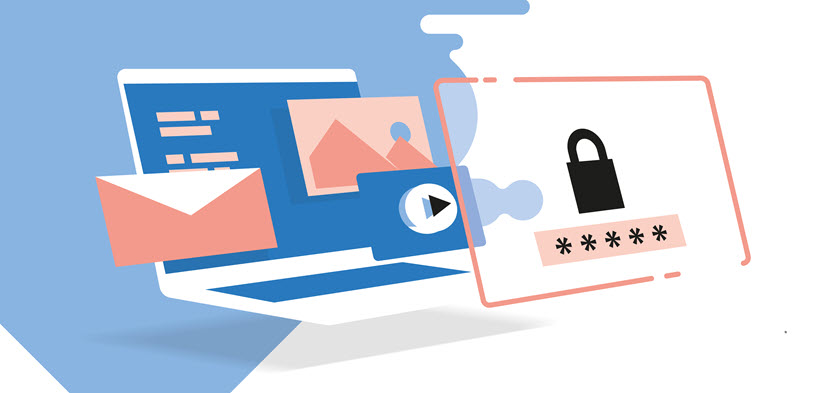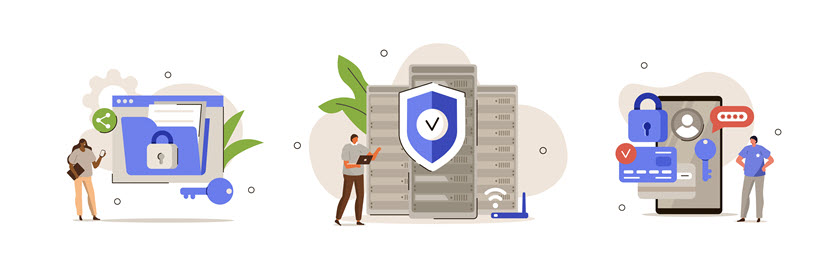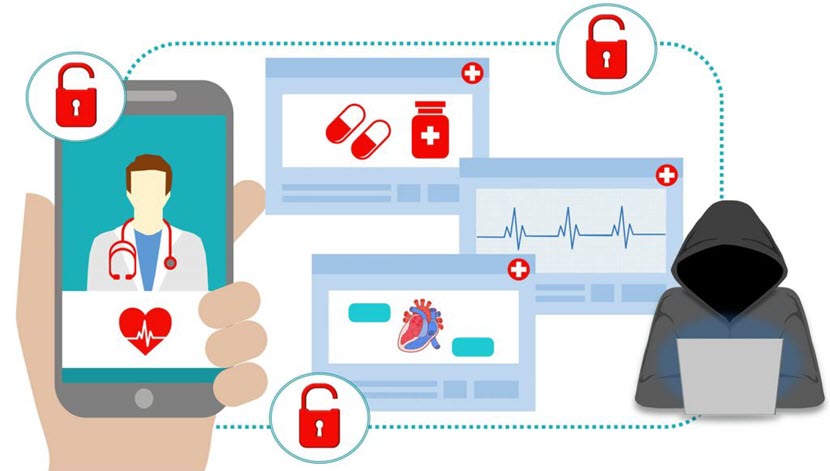Cyber-attacks targeting healthcare providers are on the rise, and unfortunately, every year sees a record number of high-profile data breaches. To add insult to injury, any such incident can trigger a HIPAA audit, the failure of which could result in costly fines that can potentially cripple a healthcare organization.
If you are not confident that your organization has made a sufficient investment of time, effort, and money into compliance, you should act now before it is too late. This article offers a comprehensive guide to understanding how the HIPAA audit process works and will help you pass with excellence.
What Is a HIPAA Audit?
A HIPAA audit is an assessment of a covered entity or business associate’s compliance with the Privacy, Security, and Breach Notification Rules of the Health Insurance Portability and Accountability Act (HIPAA).
HIPAA is a US federal law that establishes national standards for protecting the privacy and security of personal health information (PHI) and electronic health information (ePHI).
The Department of Health and Human Services Office for Civil Rights (OCR) conducts official HIPAA audits and enforces HIPAA regulations. The audit process typically involves a thorough review of an organization’s policies, procedures, and practices related to HIPAA compliance, as well as an examination of the physical, technical, and administrative safeguards that protect PHI and ePHI.
Third-party auditors or internal audit departments may also conduct HIPAA audits, but these are not official and do not carry the same weight as an audit conducted by the OCR. Rather, these audits are typically used as part of a proactive information security risk management strategy to identify and address potential issues before they escalate into larger problems.
What Triggers a HIPAA Audit?
The OCR usually triggers audits in response to a complaint or breach report. Random audits are rare and are usually reserved for large and established organizations, due to the OCR’s limited resources.
Unfortunately, during audits the OCR often discovers issues that were not the original trigger for the investigation, highlighting the importance of having an up-to-date and thorough HIPAA compliance strategy.
Here are the main HIPAA audit triggers.
1. Complaints
Two main types of complaints can trigger a HIPAA audit: patient and employee complaints.
Patients may file complaints about being denied access to their medical records or discovering that their PHI has been mishandled. For instance, a patient might see a social media post with their medical chart in the background, which is a clear violation of their privacy.
Another common trigger for an audit are disgruntled employees or whistleblowers. If an employee believes that his or her organization is in violation of HIPAA rules, he or she can request an audit. If they witness their co-workers mishandling PHI, or if their employer asks them to participate in activities that violate HIPAA, a similar scenario could occur. The media usually play a key role in raising awareness of such violations.
2. Breach Reports
Covered entities as well as business associates must report all breaches of PHI to the OCR. Not all breaches will trigger an audit. These factors include the nature and extent of the breach, as well as an organization’s prior compliance history. They also consider actions taken to mitigate the breach and prevent future incidents. These factors include the nature and extent of the breach, the organization’s prior compliance history, and the actions taken to mitigate the breach and prevent future incidents.
Here are the main causes of data breaches in healthcare:
- Employee mistakes: Many HIPAA audits are triggered by employee errors, such as falling for a phishing attack, not using strong passwords, or sending patients the wrong medical records.
- Employee misconduct: Employees sometimes intentionally violate HIPAA, whether for personal gain or out of curiosity. Examples include stealing patient records or accessing them without proper authorization.
- Third-party errors: If a business associate experiences a significant data breach, the covered entity will also be audited, as they are responsible for ensuring that their BAs follow HIPAA.
- Security incidents: Lost or stolen devices, particularly unencrypted ones, are a common security incident that triggers a HIPAA audit. Unpatched software can also lead to malware and ransomware attacks. Our comprehensive article on ransomware in healthcare examines the intricacies of this issue, equipping you with the knowledge needed to protect your organization.
3. Prior Non-Compliance
If a company has violated HIPAA in the past, they will be subjected to a follow up audit to make sure that it is now compliant. The OCR will issue a Corrective Action Plan (CAP) which outlines the specific actions the organization must take to address the identified violations, mitigate risks, and achieve compliance.During the follow-up audit, the OCR will thoroughly review the organization’s execution of the CAP. The OCR will evaluate whether the organization made the necessary changes and assess the effectiveness of its ongoing compliance. Failure to adequately address the violations will likely result in fines and further penalties by the OCR.
What Will Be Audited?
Virtually every aspect of an organization’s operations is potentially subject to scrutiny during a HIPAA audit. Documentation of policies relating to compliance with the Privacy, Security, and Breach Notification Rules.
Incident documentation that provides a record of any incidents or breaches related to PHI as well as your organization’s response.Physical safeguards
- such as facility access controls and workstation security. Technical safeguards
- such a encryption, audit logging and access controls. Relevant evidence includes:Documentation of policies
- relating to compliance with the Privacy, Security, and Breach Notification Rules.Incident documentation
- thatprovides a record of any incidents, breaches, or complaints related to PHI, as well as your organization’s response.Business Associate Agreements
- , which must outline the business associate’s responsibilities for safeguarding PHI and following HIPAA.Administrative safeguards, such as procedures for managing the security and privacy of PHI, including workforce training, access controls, and incident response.

Physical safeguards, such as facility access controls and workstation security.
Technical safeguards, such as access controls, encryption, and audit logging, which protect PHI from unauthorized access or disclosure.The auditor may also conduct on-site visits to assess an organization’s physical safeguards and interview employees to ensure they are following established policies and procedures.How to Prepare for a HIPAA Audit?
Preparing for a HIPAA audit means achieving full compliance with HIPAA regulations. This requires more than simply having policies. It is crucial to have a comprehensive program that includes tangible processes that support your policies.
Moreover, tracking mechanisms are essential for supplying visible demonstrable evidence of compliance. It is important to record and capture all relevant data, including employee training records and risk assessment reports. It is important to keep in mind that
HIPAA Compliance is not an event that occurs once. Organizations should be on the alert to find and address potential vulnerabilities and adapt policies as needed.
- Below are the steps that an organization must take to prepare for a HIPAA audit:
- Assign a Privacy and Security Officer
- Appointing a Privacy Officer is essential to compliance. They will:
- Oversee all HIPAA related efforts.
- Serve as the main point of contact for patients, employees, and regulatory agencies.
- Play a key role in workforce training and education.
- Monitor privacy practices.
Develop security measures.
Schedule regular policy reviews.
Document any breach or incident.
The Privacy Officer is typically helped by the Information Security Officer, whose role is to oversee the company’s security program. In a small organization, one person can hold both titles.
Conduct a Risk Assessment
During a HIPAA audit or in the aftermath of a breach, a risk assessment is the first document you’ll need to present to an auditor. A risk assessment will also reveal any weaknesses and gaps within your organization, which you can address proactively before the problem becomes a major issue. Taking the initiative minimizes the chance of having unaddressed vulnerabilities exposed during an audit.
Employee Training
A strong compliance program relies on a well-trained workforce that stays vigilant. All staff members who handle PHI, including contractors and part-time employees, must understand how to secure it during storage, transit, and at rest.
Educating staff on email security best practices is paramount in maintaining compliance. It is important to document the training completed by employees, and to provide HIPAA information to new hires soon after they start. Annual retraining is mandatory, and auditors often request access to training records from the past 3-4 years.
Review and Document HIPAA Policies and Procedures
It is fundamental to consistently review and update your HIPAA compliance policies and procedures, ensuring they align with changing requirements.
Regular reviews also help ensure that your organization stays abreast of any regulatory changes or emerging best practices. In addition, meticulously documenting all changes in policies and procedures will give you vital evidence in case you are audited.
Review Business Associate Agreements
As a covered entity, it is your responsibility to ensure compliance extends to your business associates. Regularly reviewing and updating all business associate agreements is therefore crucial in meeting this obligation.
To ensure compliance, BAA’s must accurately reflect current HIPAA requirements, and clearly outline the responsibilities and obligations of your business associates when it comes to protecting PHI.
Perform Regular Self Audits and Monitoring
Consider conducting regular self-audits and review various aspects of your operations to assess their compliance with HIPAA. Self-audits are internal reviews that identify potential gaps in the organization’s procedures and policies. A risk assessment, on the other hand is a more comprehensive evaluation that looks at potential vulnerabilities and risks to the security PHI. Zero trust focuses on verifying and validating every user and device trying to access sensitive data, providing an extra layer of protection.
Additionally, healthcare organizations should prioritize endpoint security and network security. These measures strengthen defenses against external attacks, protecting PHI from hackers. The audits vary in intensity, duration, and scope depending on the severity and nature of the problem being investigated. Some audits are limited to a specific area, while others may be more comprehensive and cover all aspects of HIPAA compliance.
How Long Does a HIPAA Audit Take?
A HIPAA audit can take anywhere from several weeks to several months depending on factors such as:

The scope of the audit.
The size and complexity of the organization being audited.
The presence of external entities, which complicates and lengthens the investigation.
The OCR typically gives advance notice before conducting an audit. Audited organizations are informed about the purpose, scope and duration of the audit. There are indirect costs associated with preparing for the audit, such as hiring consultants and the opportunity cost of allocating staff time. However,
- there are indirect costs
- of preparing for the audit, such as hiring consultants, and the opportunity costs of allocating staff time.
- Additionally, an organization can perform a voluntary self-audit with an external or internal auditor. External auditors typically charge fees from a few thousand to tens of thousands of dollars, based on the scope of the audit and the amount of time needed.
What Happens if You Violate HIPAA?
Violating HIPAA incurs significant fines and penalties, both civil and criminal. HIPAA penalties and fines range from $127 to $2 million
. Intentional or reckless violations may result in prison sentences of up to 10 years. OCR issues corrective actions plans (CAPs), which require the offender to adopt new policies. The CAPs include follow-up audits and stricter penalties for non-compliance. Negative publicity can lead to a loss in trust between patients and stakeholders, which has long-lasting effects. Finally, HIPAA violators may also lose their medical licensure or accreditation.ConclusionIt is understandable to feel apprehensive about HIPAA audits. They are not intended to be punitive but to evaluate an organization’s level of compliance. If you are genuinely committed to maintaining information safety and security, it is unlikely you will face significant issues during an audit.
Moreover, if the OCR finds compliance issues, they will typically collaborate with the audited organization to implement a corrective action plan rather than impose a fine. In the, the OCR will first provide technical assistance and guidance to help address the issues and improve overall compliance.
Nevertheless, the OCR is not lenient towards willful neglect of HIPAA and expects organizations to take a proactive approach. Recent high-profile breaches of data in the healthcare industry have increased the bar for compliance. Healthcare providers must at least maintain the trust of patients by taking the protection of PHI very seriously. It is important to comply with HIPAA regulations in order to meet these expectations. Otherwise, you could face costly fines or legal action. Learn more about the differences between HIPAA and HITRUST – two important frameworks that govern the compliance in the healthcare sector.
